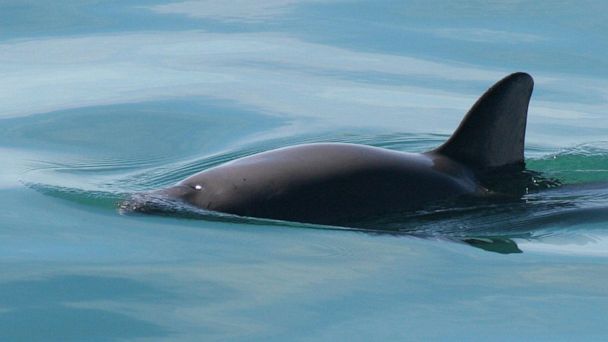
1. Mexico Sanctioned for Failing to Protect World’s Most Endangered Marine Mammal
Mexico has been sanctioned by the Convention on International Trade in Endangered Species of Wild Fauna and Flora (CITES) for not doing enough to protect the world’s most endangered marine mammal, the vaquita marina, a small porpoise.
Studies estimate that there may be as few as eight vaquitas remaining in the Gulf of California, the only place they exist, and where they often become entangled in illegal gill nets and drown. Despite Mexico banning the use of gill nets in 2017, fishermen continue to use them. Currently, Sea Shepherd is assisting the government in destroying gill nets that harm vaquitas.
Mexico has submitted a new protection plan that prioritizes establishing “alternative fishing techniques” to gill net fishing, but the Foreign Relations Department stated that CITES has deemed the plan “inadequate.” The full ruling will be officially announced next week.
Sea Save Editorial Comment: CITES is a critical treaty. This is a strong example demonstrating how the international community can apply pressure upon member nations not fulfilling their responsibility to protect listed species. This is why Sea Save has been an active CITES participant for over a decade.
Thank you for your generous gift that will help us continue the production of this weekly, free publication
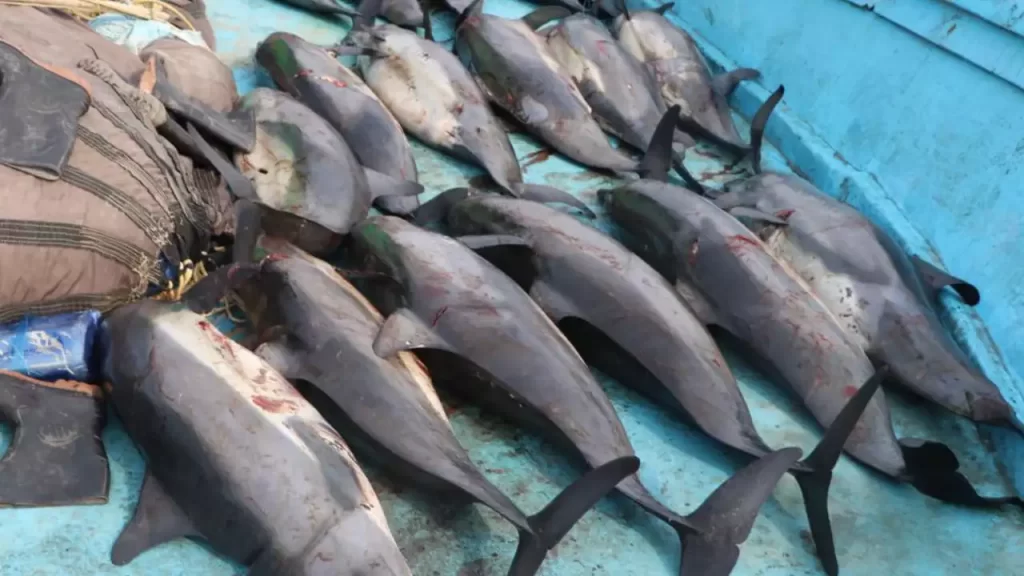
2. Dolphin Carcasses Used as Bait in Illegal Shark Fin Trade in India
Authorities in Porbandar, Gujarat, India, seized 22 dolphin carcasses and four bull shark carcasses last week, revealing an illegal shark fin trade operation for nearby countries where the fins are highly valued. Ten fishermen were arrested by the local forest department with the assistance of the Indian Coast Guard. They confessed to using the dolphin carcasses as bait to trap sharks, whose fins were subsequently extracted and exported.
India’s Wildlife Protection Act affords dolphins the highest level of protection, and the country banned the export of shark fins for international trade in 2015. The fishermen denied any direct involvement in international fins trafficking, an industry reportedly involving countries such as China, Sri Lanka, Hong Kong, and Singapore.
While the poaching ring has been disrupted, the investigation is ongoing, and coastal authorities have been alerted to collaborate and address this issue. Monitoring the entire Gujarat coastline for violations remains a challenge.

3. Ban on Plastic Foam To-Go Containers and Utensils Passes Illinois House
After discovering that over twenty million pounds of plastic debris enter the Great Lakes every year, legislators in Illinois are taking action to ban plastic foam cups, containers, and utensils. The Illinois House of Representatives voted 67-43 in favor of phasing out all single-use polystyrene foam food war starting in January 2024.
With a coalition of more than 35 organizations in Illinois prioritizing plastic reduction, this is seen as a significant step forward. Volunteers have collected over 57,000 foam pieces throughout Illinois’s waterways and beaches during ten years of cleanup efforts.
Anja Brandon, associate director of U.S plastics policy at Ocean Conservancy, states that “a ban on foam means not only less plastic polluting our communities and waters, but also more effective recycling.”
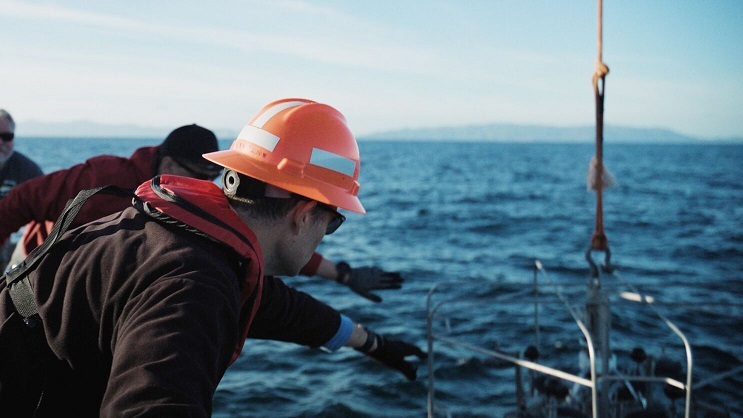
4. High Concentrations of DDT Pollution Discovered off Southern California Coast
Dichlorodiphenyltrichloroethane (DDT), a toxic chemical that was banned in 1972, continues to haunt our marine environment. Recently, scientists have discovered that a significant amount of DDT, which was dumped in over a dozen locations off the coast of Southern California during the 1940s and 1950s, never actually broke down. In fact, it persists in startlingly high concentrations spread across a vast expanse of seafloor larger than the city of San Francisco.
“We’re still grappling with this legacy of treating the ocean as a dumping ground,” said Katherine Pease, science and policy director at Heal the Bay. “We all need to understand the history that went on, as well as the impacts… to make sure that we’re able to protect our public health, but also to think about how we are treating the ocean now, as well as into the future.”

5. New Head of U.S. Senate Budget Committee Aims to Address Climate Change
Senator Sheldon Whitehouse, the new head of the U.S. Senate Budget Committee, plans to prioritize climate change on the committee.
He has given nearly 300 weekly climate addresses, called “Time to Wake Up” speeches, on the Senate floor. As a strong supporter of action on climate change, Whitehouse aims to focus more attention on the issue in his new role.
Whitehouse has stated that he believes Congress’s failure to address climate change shows “a dramatic lack of integrity, almost entirely due to the malign political influence of the fossil fuel industry operating semi-covertly through dark money channels and front groups.”
Whitehouse also aims to improve the country’s public health outcomes and to reform the tax code. He has indicated that he would like to set overall budget goals for Congress, including limiting the country’s level of public debt compared to its GDP.
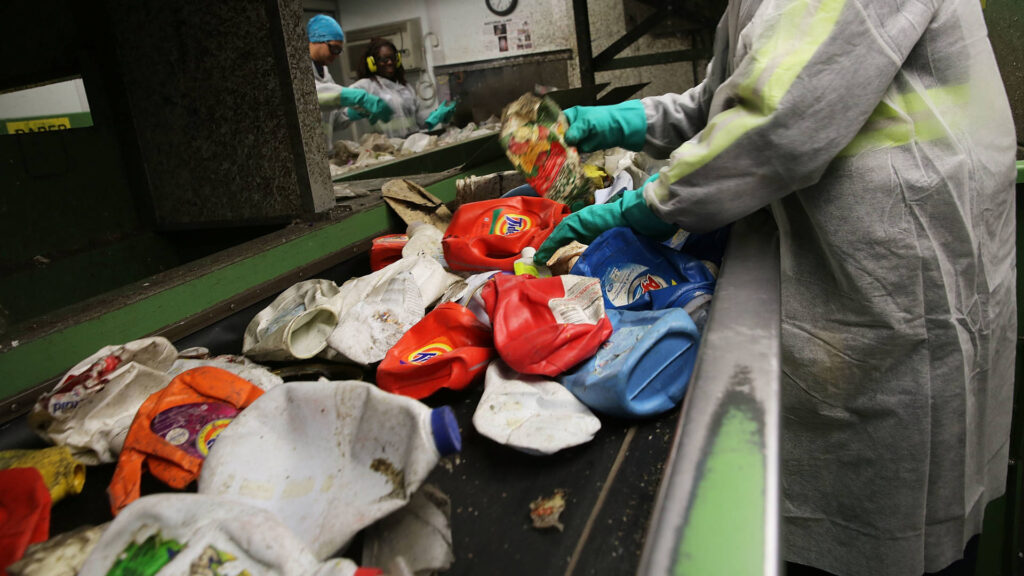
6. Are Your “Recycled” Grocery Bags Actually Recycled?
Governments worldwide are encouraging companies to incorporate recycled materials in their products to boost a sluggish market for recycled plastic. Currently, most plastic products are made from newly extracted fossil fuels like crude oil and natural gas. However, using recycled plastic can help reduce emissions and limit pollution in waterways and landfills. Collecting, sorting, pulverizing, and melting post-consumer plastics for reuse is expensive, but new laws could help recyclers find buyers for what would otherwise be waste.
However, the current approach, called mass balance, poses challenges for verifying recycled content. To work effectively, mass balance requires trustworthy and accurate data, which isn’t always available across a complex supply chain. Additionally, experts warn that mass balance may lead to inflated estimates of recycled content.
Researchers believe that establishing trust in measuring recycled content will require government action, similar to the case of “organic” labels

7. Climate Solution: Downsize Laundry Jugs to Cut Emissions
Laundry detergent is undergoing a transformation as more companies switch from bulky plastic jugs to concentrated formulas. With less water in the mix, these products are lighter and easier to transport, requiring fewer fossil fuels and resulting in lower carbon emissions from delivery trucks. Some new formulas come in ultra-concentrated liquid or solid sheet form, reducing the size of the packaging to something roughly the size of an iPhone.
Traditional laundry detergent can contain up to 90% water, making large, heavy jugs inefficient to transport. By selling more concentrated formulas, companies can cut waste without sacrificing quality. Reducing plastic pollution is vital to lower carbon emissions, as most plastics are made from fossil fuels.
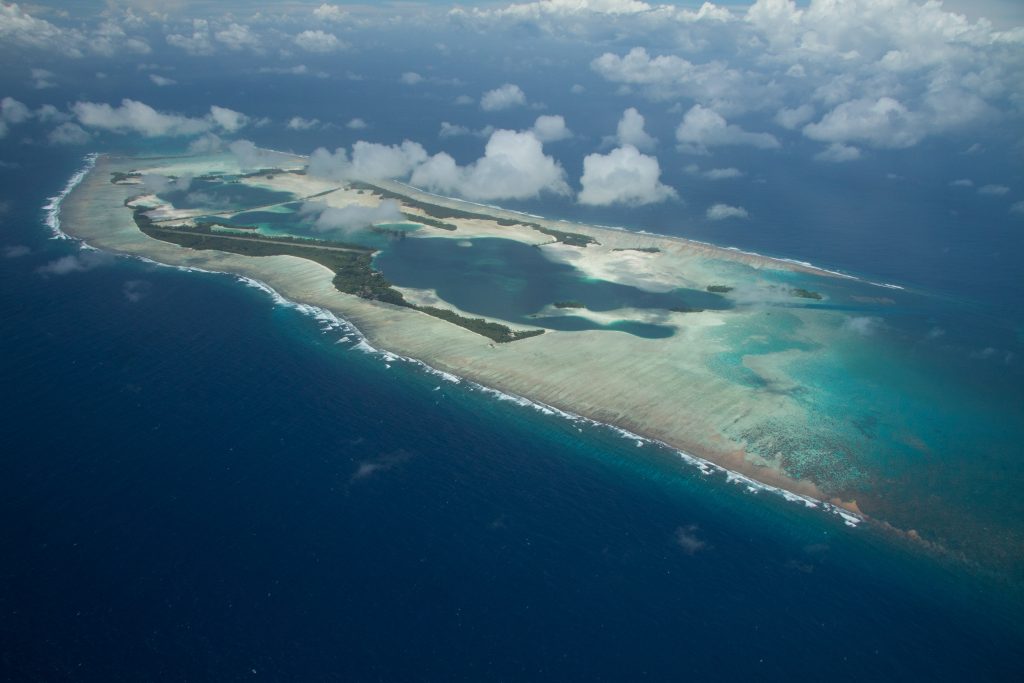
8. National Marine Sanctuary for Pacific Remote Islands Supported by U.S. Administration
President Joe Biden directed the U.S. Secretary of Commerce to consider initiating a new National Marine Sanctuary designation within the next 30 days. The new marine sanctuary would encompass all areas of U.S. jurisdiction around the islands, atolls and reefs of the Pacific Remote Islands.
The potential new National Marine Sanctuary identified in the Presidential Memorandum would conserve 777,000 square miles, including the existing Pacific Remote Islands Marine National Monument and currently unprotected submerged lands and waters.
With resilient coral reefs, diverse threatened and endangered wildlife, and deep-sea species that do not exist anywhere else on Earth, the Pacific Remote Islands house some of the last healthy, wild ecosystems in the Pacific Ocean. Its waterways weave a rich, shared wayfinding history connecting Indigenous Pacific Islanders who crossed the Pacific using winds, stars and currents to navigate their paths.

9. U.S. Government Urged to Accelerate Ocean Protection by Term End
Some Americans believe that President Biden’s ocean conservation efforts have fallen short of his rhetoric and promises, with only 21 months left in his current term. His Executive Order “Tackling the Climate Crisis at Home and Abroad,” dated Jan. 27, 2021, calls for conserving 30 percent of U.S. lands and waters by 2030, known as 30×30. However, little has been accomplished in the ocean so far.
Rick Steiner believes that on an issue as urgent and critical to our nation’s future as ocean health, the Biden administration’s bureaucratic slow rolling is unacceptable. It is critical that the administration expands and accelerates its ocean protection effort immediately. He states there is no reason to wait until 2030 to secure the protections urgently needed for U.S. waters — the administration can, and should, act in the next two years to make this happen — a “30×25” goal.
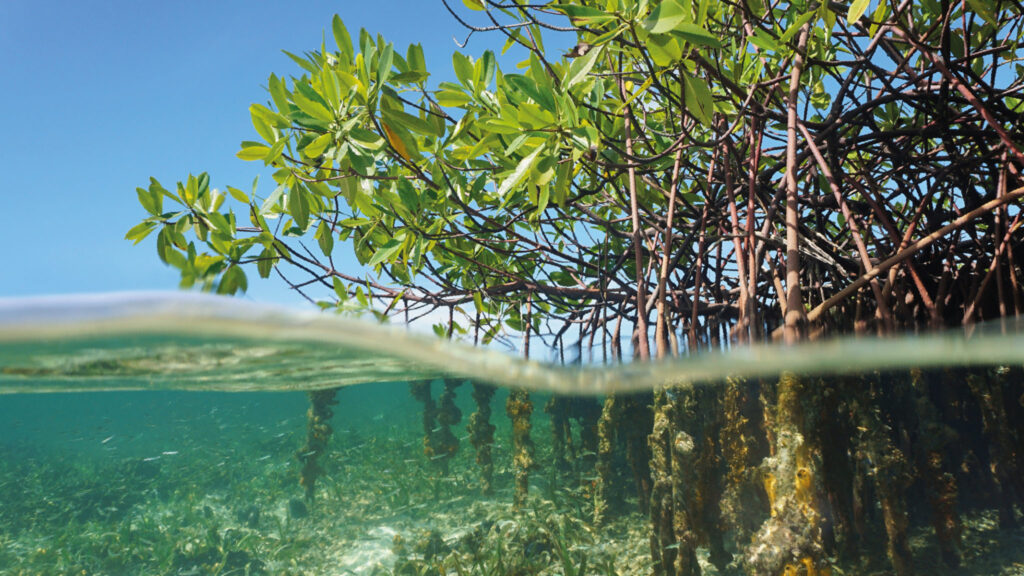
10. Marine Conservation Experts from Nine Countries Meet to Protect Western Indian Ocean Mangroves
Marine conservation experts from nine countries in the western Indian Ocean region recently gathered to discuss how to protect the mangrove ecosystems in Tanzania, Kenya, Mozambique, South Africa, Madagascar, Somalia, the Comoros, Mauritius, and the Seychelles.
According to marine scientist and regional director for the World Wide Fund for Nature-Tanzania, Amani Ngusaru, mangrove forests are a critical component of the marine ecosystem and require better governance and management to ensure their survival.
Threats to these ecosystems include rising sea levels and human activities, such as deforestation and industrial water use. Although mangroves have legal protection status in Tanzania, unregulated human activity has posed a threat to their sustainability.
The experts highlighted the need for greater sharing of best practices and proper implementation of approved land use plans to facilitate conservation and promote a sustainable future for mangrove ecosystems.
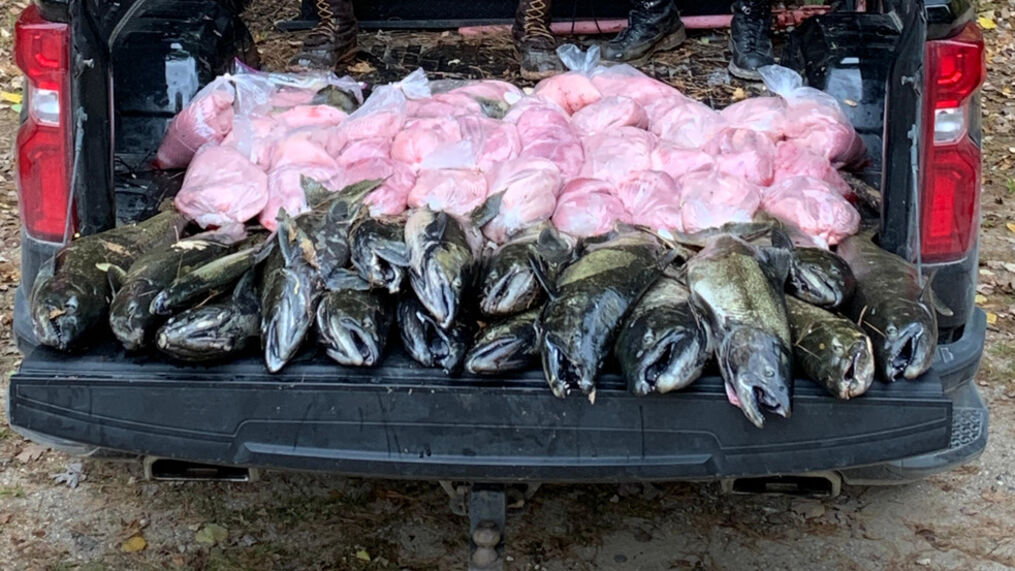
11. Colorado Anglers Fined $6,600 for Salmon Poaching in Michigan
A group of six anglers from Colorado has been fined over $6,600 for poaching salmon in Manistee County, Michigan.
The investigation began in October 2022, when conservation officers with the Department of Natural Resources were on a fish patrol near the Tippy Dam. The officers were approached by another angler who reported a group of men downriver illegally taking fish.
The officers determined that the fishermen did not have valid fishing licenses, were using illegal tackle, and possessed 17 salmon taken by illegal methods. The fishermen had an additional 40-50 fish in coolers, some of which had already been filleted.
Each of the men has been charged in the local district court and owes over $1,100 in restitution, fines, and costs.
The conservation officers were able to donate more than 460 pounds of fresh fish to families in need in Manistee County.
.
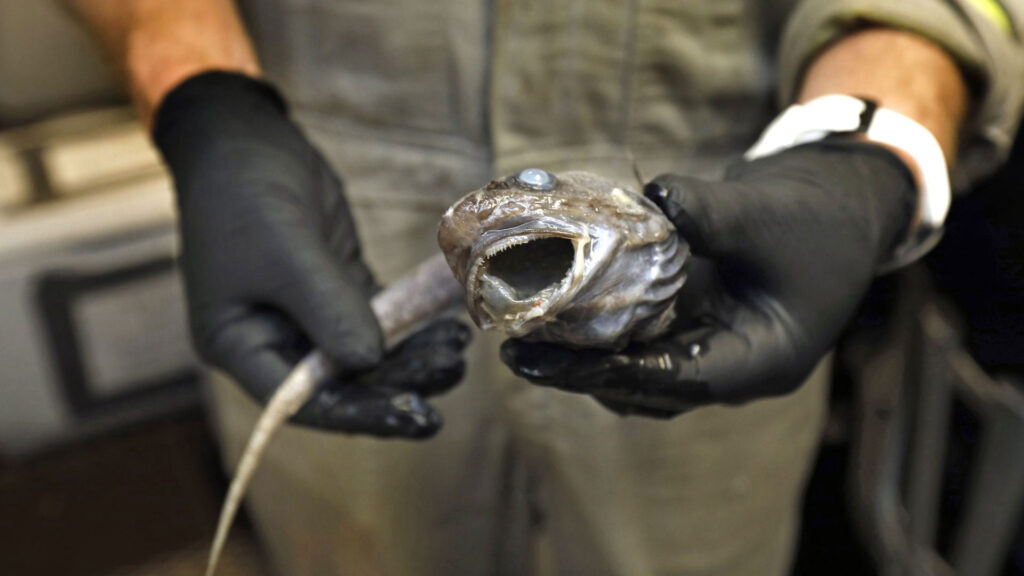
12. The Race for More Battery Materials Could Cause ‘Irreversible’ Damage Under the Sea
Mining the sea for battery materials could potentially result in devastating and irreversible consequences. As electric vehicles and renewable energy depend on batteries, there is an increasing demand for raw materials used to manufacture them. It is projected that mining companies could commence extracting materials from the deep sea at an industrial scale as soon as next year.
However, this could cause catastrophic and irreversible damage to the delicate ecosystems on the seafloor. Therefore, ocean researchers and advocates are urging for a deep seabed mining moratorium before it’s too late.
Leaders from a number of countries and small island nations are pushing for a pause on deep-sea mining. Some tech and car companies have also backed a moratorium. The companies point to “responsible” mining on land as an alternative, an option that has historically also been fraught with environmental and human rights abuses.
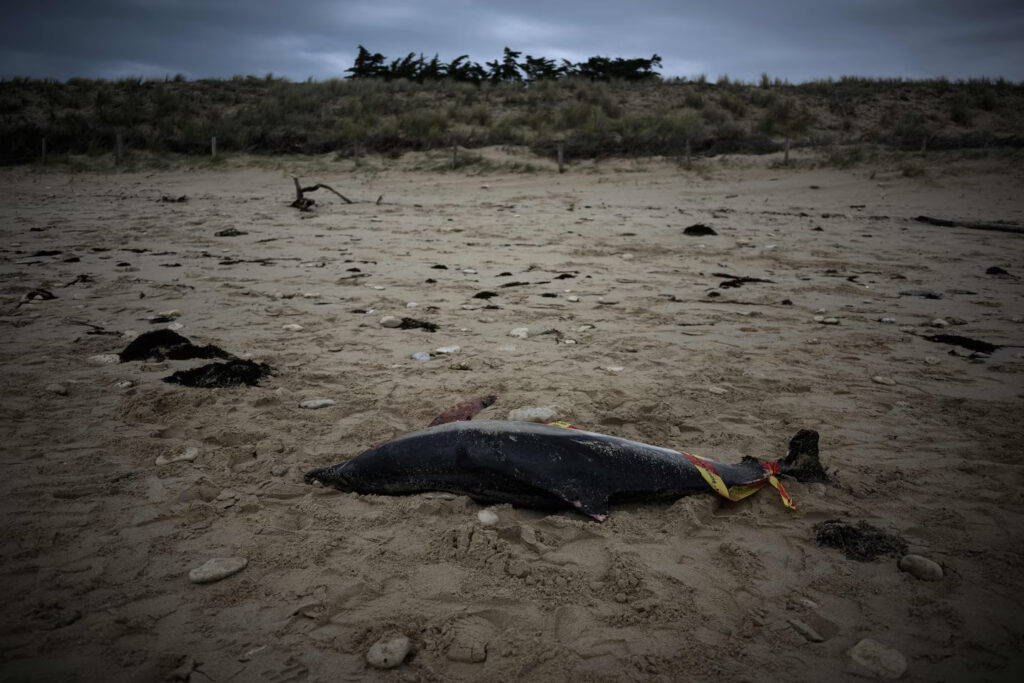
13. Why Sea Creatures Are Washing up Dead Around the World
Dead fish in Florida. Beached whales in New Jersey. Sea urchins, starfish and crayfish washing ashore in New Zealand. Millions of rotting fish clogging up a river in the Australian outback. A mass fish die-off in Poland. Around the world, freshwater and marine creatures are dying in large numbers, leaving experts to puzzle over the cause.
According to some experts, climate change could be causing more algal blooms and other events that deprive fish of oxygen. Warming oceans and marine heat waves are forcing sea creatures to move from their usual habitats. Additionally, human activities like coastal shipping are being investigated for a recent surge in marine mammal deaths in the United States.
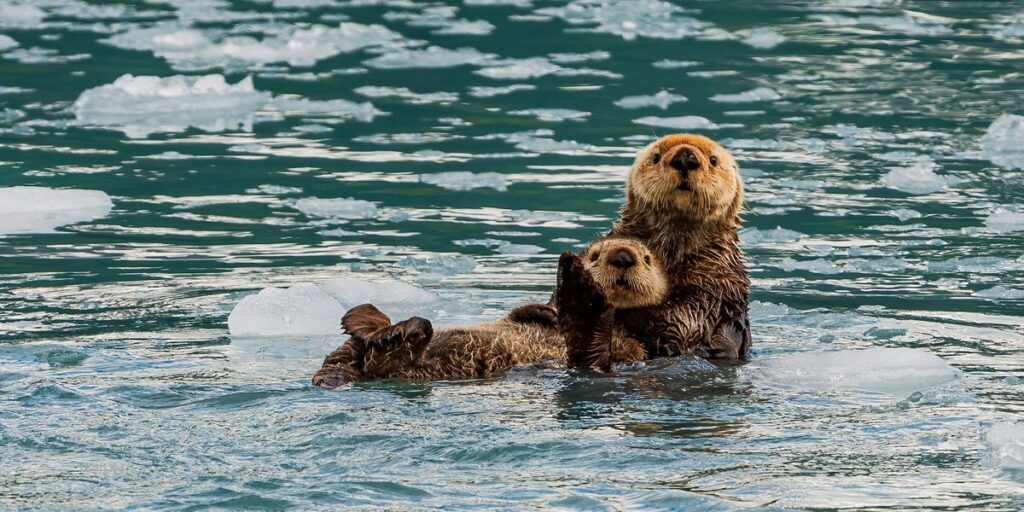
14. Wildlife Conservation Could Mitigate Climate Change
A recent study by the Yale School of the Environment suggests that global wildlife conservation could enhance natural carbon capture and storage by improving ecosystem carbon sinks. T
he study focused on nine wildlife species, including marine fish, whales, sharks, sea otters, and other land mammals. Analysis of the data showed that wildlife conservation could result in the capture of an additional 6.41 billion tons of carbon dioxide annually, which is nearly 95% of the amount required to achieve the Paris Agreement goal of removing enough carbon from the atmosphere to limit global warming to below 1.5°C.
According to Oswald Schmitz, the Oastler Professor of Population and Community Ecology, “Wildlife species, throughout their interaction with the environment, are the missing link between biodiversity and climate. This interaction means rewilding can be among the best nature-based climate solutions available to humankind.”

15. Study Finds 100-Fold Increase in Microplastic Levels in UK Seas
Last summer, as part of the 2,000-mile Great Britain Row Challenge to circumnavigate Great Britain, three rowing teams collected samples for new research. These samples were analyzed by scientists at the University of Portsmouth, who found that microplastic levels in UK seas have increased by 100 times compared to six years ago.
Some experts attribute this to the use of steel filters in the new study, which allowed for the capture of smaller-sized particles and provided a more accurate measurement of pollution levels.
“The data collected by GB Row Challenge will greatly enhance our understanding of conditions in the seas around the UK.” Dr. Fay Cuceiro from the School of Civil Engineering and Surveying said. She also stressed the importance of monitoring plastic levels for animals that consume large amounts of microplastics.
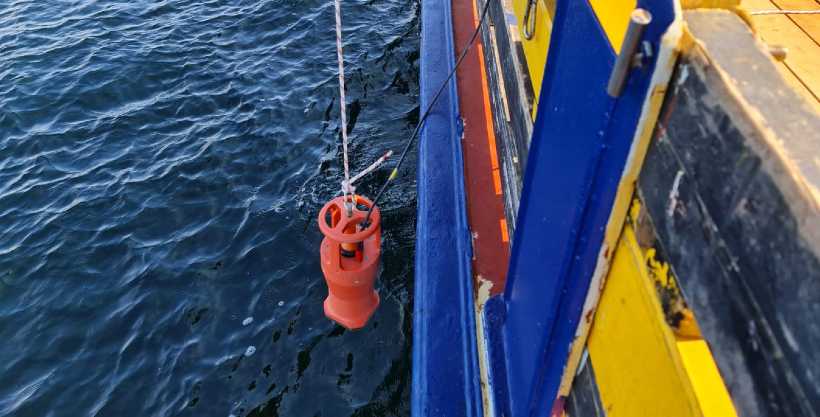
16. Protection System for Oceanic Wildlife in Development
Scotland’s Ace Aquatec and marine ecosystem restoration specialist Ocean Health have partnered to develop a system called FaunaGuard to protect oceanic wildlife. According to a news release, FaunaGuard creates temporary exclusion zones around project sites at sea by combining sound patterns with award-winning transducer technology.
This system is set to function as an important tool for protecting oceanic wildlife from the dangers of offshore construction projects. FaunaGuard aims to keep animals at a safe distance during marine activities such as pile driving, detonation of underwater explosives, and oil spill cleanup.
Both Ace Aquatec and Ocean Health are working to make FaunaGuard globally available as the go-to mitigation solution for the offshore renewables sector. In addition, FaunaGuard devices are anticipated to be installed for Ocean Health in the Baltic Sea beginning this month onwards.
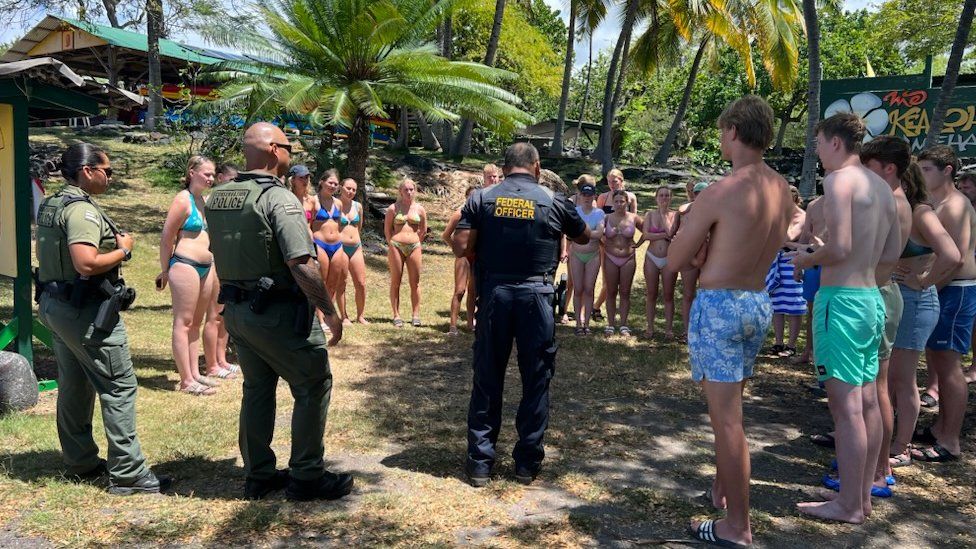
17. 33 Swimmers in Hawaii Accused of ‘Aggressively Pursuing’ Dolphins
Authorities are investigating a group of 33 swimmers who are accused of “aggressively pursuing, corralling, and harassing” a pod of spinner dolphins off Hawaii’s Big Island. Swimming with dolphins is a popular tourist activity, but federal law bans swimming within 50 yards of spinner dolphins to protect them during their resting period.
The swimmers were seen moving towards the dolphins in Honaunau Bay. Hawaii’s Department of Land and National Resources said that uniformed officers met the swimmers on land and informed them of the violation of federal law. The National Oceanic and Atmospheric Administration has launched a joint investigation into the incident.
Editorial Opinion from Sea Save Director Georgienne Bradley: I have spent hundreds of hours swimming, diving and documenting dolphin. Dolphin will often come to me when I am in the water. They are curious and sometimes playful. When they want to leave, in one flick of their tail they disappear. Unless these animals were injured or trapped these 33 slow swimming tourists posed no threat to the dolphin.
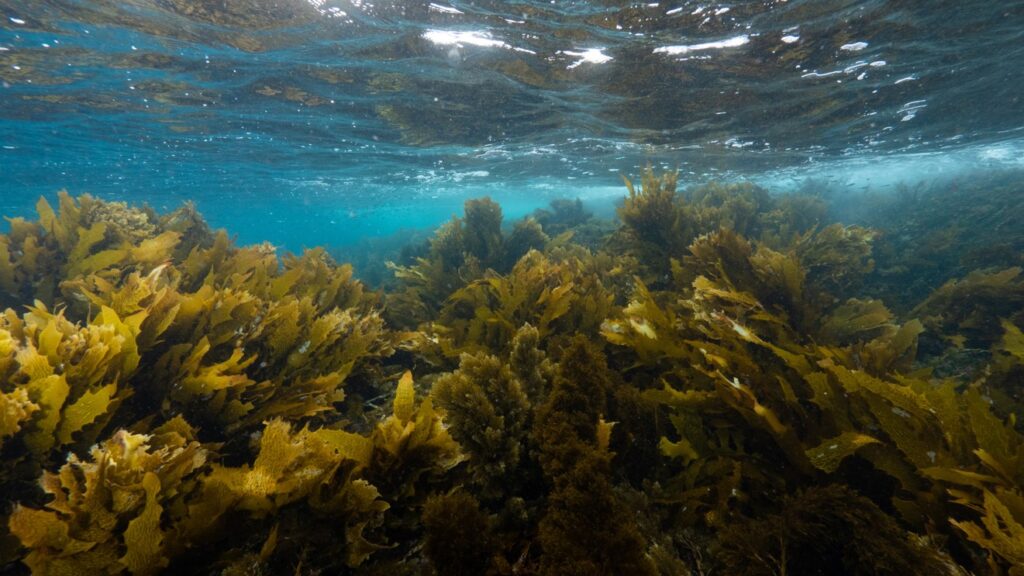
18. Australian Conservation Groups Launch Project to Restore Golden Kelp Forests in Melbourne’s Marine Sanctuaries
Conservation groups, including The Nature Conservancy Australia and experts from the University of Melbourne, Deakin University, and Parks Victoria, have launched a project to restore golden kelp forests in Melbourne’s marine sanctuaries. Native purple sea urchins have overgrazed and depleted the kelp forests in the Port Philip Bay’s marine sanctuaries, leaving barren rocky stretches and algae-covered sand. More than 60% of reefs in the bay have been affected by urchin overgrazing.
The project will focus on cultivating golden kelp at a microscopic level to plant onto reefs, with over 6 million juvenile kelp spores grown in Deakin University’s laboratory at the Queenscliff Marine Science Centre. The planting will take place in Jawbone and Ricketts Point marine sanctuaries, and the results will guide future restoration efforts. The project will also involve removing overabundant purple urchin populations.
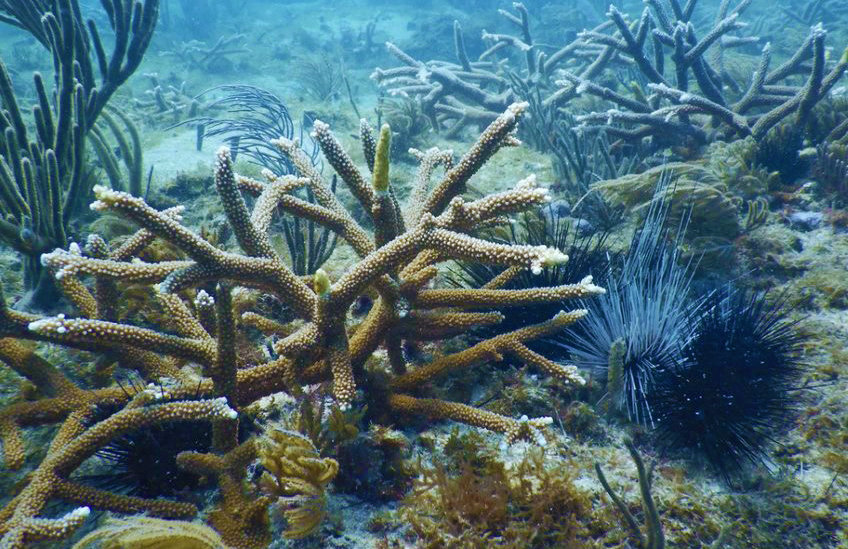
19.Sea Urchins Successfully Relocated to Restore Florida’s Coral Reefs, Showing Promising Results
Scientists from the University of Florida (UF), the Phillip and Patricia Frost Museum of Science, and the University of Miami have successfully relocated sea urchins to a reef off Key Biscayne, Florida, as part of an effort to restore coral reefs.
The project yielded promising results, with more than half of the urchins remaining on the reef after three months and nearly one-fourth still there after nine months. Volunteers, NFL wide receiver Mack Hollins, and Air Force veteran Jay Casello were involved in the project.
“While we need to confirm these results in different regions, we feel optimistic about the potential benefits to Florida’s Coral Reef and the greater Caribbean,” said UF Institute of Food and Agricultural Sciences’ Brad Buck. “The goal is to populate reefs with Diadema (the scientific name for these urchins) and figure out how to get them to stick around long enough to start eating algae.”
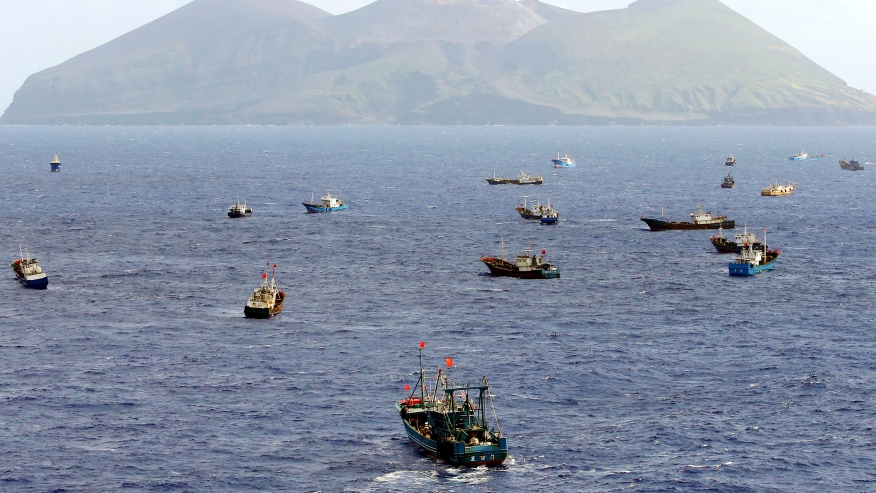
20. China’s Distant Water Fishing Fleet: A Threat to Global Maritime Order?
Some experts believe that China’s distant water fishing fleet is occupying the world’s oceans as part of its strategy to gain sovereignty over them. The country’s aim to gain ownership of the seas through adverse possession is highlighted by its fisheries policies. China’s “Nine Dash Line” claim asserts sovereignty over maritime areas in the South China Sea and East China Sea beyond what is permitted under international law, based on “traditional fishing grounds.”
China could potentially argue that the areas in which its distant water fishing fleet has been operating in recent years are also “owned” by them. Experts warn of the implications for food and energy security, as well as the military, intelligence, and communication infrastructure that China could install in these areas. They believe that the strategy must be countered to protect the integrity of the global maritime order and uphold international law.
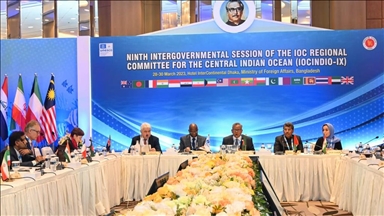
21. Bangladesh’s Foreign Minister Calls for Regional Focus on Marine Conservation and Climate Change Mitigation
Bangladesh’s Foreign Minister AK Abdul Momen called on 19 member states linked to the Indian Ocean to focus on marine conservation, promote sustainable management of marine resources, and mitigate the effects of climate change. The appeal was made during the 9th Intergovernmental Oceanographic Commission’s Regional Committee for the Central Indian Ocean in Dhaka, Bangladesh.
Momen recognized the importance of preserving oceans’ biological diversity and committed to working towards sustainable ocean governance. Bangladesh is also one of the countries in the world being threatened heavily by plastic pollution. According to a study by Waste Concern, 821,250 tons of plastic waste were generated in urban hubs of Bangladesh annually, with 207,685 tons dumped in the marine environment.
“We have taken bold steps, such as banning single-use plastic bags and implementing policies to reduce carbon emissions. We must continue our efforts to combat climate change and protect our oceans,” Momen said.




